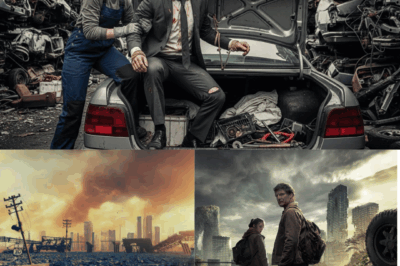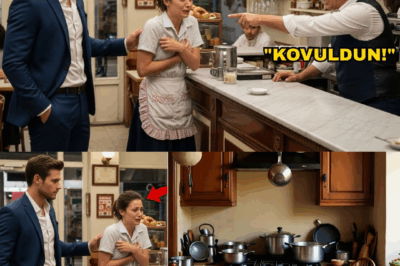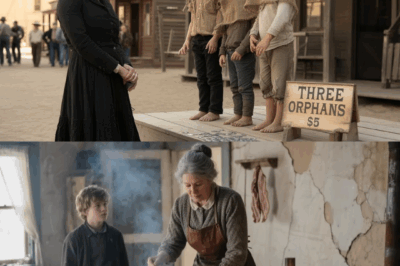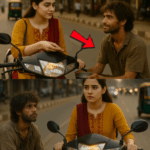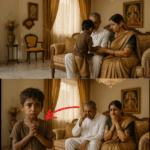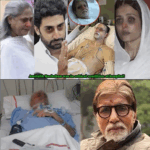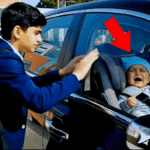Indian truck driver jailed in Florida after crash — news clip
The story of Harjinder Singh, an Indian‑origin commercial truck driver, has become a flashpoint in recent U.S. news—because it intertwines a tragic accident, immigration status, licensing issues, and growing political debate. The incident, which resulted in the deaths of three people, has sparked international attention, petitions, legal actions, and heated discussions about responsibility, fairness, and enforcement.
The Incident: What Happened
On August 12, 2025, Harjinder Singh, a 28‑year‑old truck driver, allegedly made an illegal U‑turn with his tractor‑trailer on the Florida Turnpike near Fort Pierce. This maneuver blocked all lanes of northbound traffic, and a minivan traveling in the adjacent lane — unable to stop or avoid collision in time — slammed into the side of the trailer. Three people in the minivan died. CBS News+3Indiatimes+3https://www.wdtv.com+3
Singh and any passengers in his truck were reportedly uninjured. CBS News+2https://www.wdtv.com+2 He was arrested in California by U.S. Marshals and extradited to Florida to face charges of three counts of vehicular homicide plus immigration‐related violations. WUSF+2www.ndtv.com+2
Legal & Immigration Profile
Singh’s immigration background is complicated and central to much of the controversy:
He is accused of entering the U.S. illegally in 2018 via the southern border. www.ndtv.com+2WUSF+2
He applied for asylum (or refugee protection) citing fear of persecution if returned to India — a claim which reportedly influenced later proceedings. www.ndtv.com
In 2019, he was released on immigration bond. In 2021, under the Biden administration, he obtained a work permit. WUSF+2www.ndtv.com+2
He was granted a Commercial Driver’s License (CDL) in California despite his immigration status; this CDL later became central in questioning how someone with undocumented status could legally drive a commercial truck. WUSF+2The Times of India+2
The Arguments: Guilt, Responsibility & Mercy
Prosecutors & Authorities
From the law enforcement side, there are several arguments:
Singh’s illegal U‑turn is deemed reckless and unlawful, especially on a major highway where such actions are forbidden. https://www.wdtv.com+2Indiatimes+2
The deaths of three people are tragic consequences of his maneuver, and under Florida law, vehicular homicide is a serious offense, carrying stiff penalties — possibly up to 45 years (three counts × up to 15 years each). The Times of India+2WUSF+2
Authorities have also criticized the licensing system—how someone who allegedly failed to demonstrate adequate English comprehension or sign recognition (as reported) could receive a CDL. This raises concerns about public safety and regulatory oversight. Indiatimes+2WUSF+2
Singh’s Family & Supporters
On the other hand, there is a strong plea for mercy and a different framing of what occurred:
The family argues that Singh did not intend harm; that while his judgment was flawed (making a U‑turn illegally), this was not a premeditated crime. The Times of India+1
There has been a large petition (in the range of over one to two million signatures) calling for clemency or at least more lenient treatment, considering his personal history, immigrant status, and what they claim was a single error rather than malicious intent. India Today+2New York Post+2
Some point out that many immigrant drivers work under difficult conditions, often with limited resources, and that licensing regulations are sometimes inconsistent or not strictly enforced in certain jurisdictions. WUSF+2The Times of India+2
Key Controversies & Weaknesses
The case is loaded with issues that make everyone involved—judiciary, immigration authorities, driving authorities— face scrutiny. Some of the key controversial points:
Language and Signage Competency: It has been reported Singh did poorly on tests of English comprehension and road sign reading after the crash, which fuels questions over whether licensing authorities should have granted him a CDL. Some argue this demonstrates systemic negligence; others say that test results after the fact can’t fully predict events in real life. Indiatimes+2WUSF+2
Immigration vs. Criminal Liability: Singh’s immigration status complicates what many see as a criminal matter. Some tools of state law are being used (vehicular homicide), others (immigration detainers, deportation) are federal. The intersection tends to polarize opinions: those who emphasize immigration law, those who emphasize responsibility for traffic safety. WUSF+2www.ndtv.com+2
Employer Responsibility: Authorities have also subpoenaed Singh’s employer (WhiteHawk Carriers) to provide documents, seeking to understand how the hiring, licensing, oversight process was managed. For instance, how did someone allegedly lacking in sign‑reading, English comprehension get cleared to drive a tractor‑trailer? Was there oversight or negligence at the company or licensing board level? The Times of India+1
Political & Social Fallout: The case has quickly become part of political discourse—on immigration policy, state licensing practices, debates around foreign vs domestic labor. Some officials have used it to argue for stricter state laws on foreign drivers, English proficiency requirements, or visa policy changes. Others caution against using one case to generalize. www.ndtv.com+1
The Human Dimension: Loss, Remorse, Community
Beyond the legal, there’s a tragic human side:
Three people lost their lives. The victims are not nameless news items; they left families, communities. Their deaths matter in themselves. CBS News+1
Singh’s attorney (or at least someone speaking on his behalf) reportedly said Singh expressed regret and sorrow over the event — that he wished he could go back in time and avoid that ill‑fated turn. CBS News+1
There is also cost to Singh’s family in India: financial, emotional, reputational. For many immigrant worker families, these legal and financial battles can be devastating. His relatives reportedly have pleaded that harsh punishment could destroy not only Singh’s future but deeply affect his family. The Times of India+1
Broader Implications
This case is resonating not just because one person is charged, but because it touches on larger themes that matter:
Immigration Policy & Enforcement
Cases like this often push for tighter rules around work permits, licenses, immigration status. Some states have differing rules (e.g. some allow undocumented immigrants to get driver licenses) which can create tension among states, and between states and the federal government.
Licensing Standards & Safety Regulations
The question of how commercial driving licenses are issued—what tests are required, what documentation, what language or sign‑reading proficiency—comes sharply into focus. If dangerous or deadly incidents can occur due to of weak enforcement, there will likely be pressure for reform.
Public Trust & Ethnic/Community Reactions
Among Indian and Punjabi expatriate communities, this case has stirred sorrow but also fear—because many foreign truckers worry they could be held up under similar scrutiny. There is also concern about backlash, discrimination, or sweeping rules that affect many.
Media & Political Framing
The narrative has already become politicized. Some officials emphasize law and enforcement; others emphasize compassion, immigrant rights. Petitions, social media campaigns, and public reactions are part of shaping how this story ends—not just legally, but socially.
What Would Be a Fair & Just Outcome?
Given the complexity, what might constitute an outcome that balances justice, public safety, and humane treatment?
A thorough, transparent legal trial that looks carefully at evidence: traffic studies, witness statements, condition of the truck, Singh’s driving history, whether signage was sufficient, whether English/proficiency tests were fairly administered.
Accountability for all parties if negligence is found: not only Singh, but possibly licensing authorities, employer, testing agencies, if they failed duties.
Consideration of mitigation: Singh’s immigration status, intent, remorse, whether it truly was a split‑second error rather than reckless endangerment.
A sentence that reflects both punishment for loss of human life and the possibility for rehabilitation or reduced sentence if there are extenuating factors.
Policy and administrative reforms: better oversight of licensing, stricter standards where needed, fair treatment for immigrant workers so that regulation doesn’t become unjust, and appropriate training and testing before issuing CDLs.
Conclusion
The Harjinder Singh case is tragic. Three people lost their lives; families are grieving. On the other hand, Singh’s history, immigration status, licensing, and claims of remorse add complexity. It’s not simply a black‑and‑white case of guilt or innocence; it’s about systems—immigration policy, licensing norms, accountability—and how they worked or failed in this case.
What makes this story compelling is how it forces us to confront difficult trade‑offs: between strict enforcement and compassion; between public safety and immigrant rights; between rule of law and fairness in real human situations.
While the law must hold individuals responsible for wrongdoing, it must also recognize that immigrant lives often come with disproportionate vulnerability: language barriers, lack of familiarity with regulations, limited resources, pressure to take risky jobs.
In the end, justice in Harjinder Singh’s case will mean not just punishing or exonerating one person, but learning from what went wrong—making changes so that such tragedies are less likely to repeat.
News
Fakir Kız Bagajda Bir Milyoner Buldu… Yüzünü Görünce Tüm Hayatı Değişti
Fakir Kız Bagajda Bir Milyoner Buldu… Yüzünü Görünce Tüm Hayatı Değişti İstanbul’un Aralık sabahı, Nişantaşı sokakları buz gibi. Rüzgâr ayak…
Milyonerin İkizleri KÖRDÜ, ta ki yeni TEMİZLEYİCİ tüm GERÇEĞİ ORTAYA ÇIKARAN bir şey yapana kadar
Milyonerin İkizleri KÖRDÜ, ta ki yeni TEMİZLEYİCİ tüm GERÇEĞİ ORTAYA ÇIKARAN bir şey yapana kadar Sao Paulo’nun sabahında, ışıklarla gölgelerin…
MÜDÜR BAĞIRDI: “KOVULDUN!”… TA KI MILYONER GELIP HER ŞEYI DEĞIŞTIRENE KADAR
MÜDÜR BAĞIRDI: “KOVULDUN!”… TA KI MILYONER GELIP HER ŞEYI DEĞIŞTIRENE KADAR İstanbul’un sabah serinliği, İstiklal Caddesi’nde Küçük Simit Sarayı adlı…
Milyoner Eski Eşini Küçük Düşürmek İçin Çağırdı… Kadın İkizleriyle Ferrari’de Gelip Herkesi Susturdu
Milyoner Eski Eşini Küçük Düşürmek İçin Çağırdı… Kadın İkizleriyle Ferrari’de Gelip Herkesi Susturdu Zeynep, İstanbul’un gürültüsünden ve ışığından uzak, kendi…
Yalnız bir kadın, başlarında çuval olan üç yetimi satın aldı – Sonra içlerinden biri konuştu…
Yalnız bir kadın, başlarında çuval olan üç yetimi satın aldı – Sonra içlerinden biri konuştu… 1887 yazıydı. Amerikan vahşi batısının…
MILYONER, HIZMETÇININ EVINE HABERSIZ GELIR… NE BULACAĞINI ASLA HAYAL EDEMEMIŞTI
MILYONER, HIZMETÇININ EVINE HABERSIZ GELIR… NE BULACAĞINI ASLA HAYAL EDEMEMIŞTI Kadir Arslan, Türkiye’nin gayrimenkul kralıydı. Evleri, şirketleri, arabaları olan, iş…
End of content
No more pages to load

